UN says Taliban ban on women staff in NGOs hit humanitarian operations in Afghanistan
The United Nations says the Taliban's controversial decision to impose an indefinite ban on female staff working at local and international non-governmental organizations (NGOs) in Afghanistan will hamper humanitarian operations, calling for a meeting with Taliban leadership to seek clarity.
In a statement, UN's spokesman Stephane Dujarric noted that Secretary General Antonio Guterres was “deeply disturbed by the reported order of the de facto Taliban authorities" and that the UN chief “reiterates the rights of all women to participate in the workforce thus contributing to the greater good.”
In a separate statement, the UN humanitarian coordination office in Afghanistan condemned the latest round of restrictions on women’s rights and emphasized that any such order by the authorities “would violate the most fundamental rights of women, as well as be a clear breach of humanitarian principles.”
“Women must be enabled to play a critical role in all aspects of life, including the humanitarian response,” the statement said, adding that, “This latest decision will only further hurt those most vulnerable, especially women and girls.”
The statement went on to note that the UN and its partners, including national and international NGOs, are helping more than 28 million Afghans who depend on humanitarian aid to survive.
“The effective delivery of humanitarian assistance requires full, safe and unhindered access for all aid workers, including women. The reported ban on women working with the international community to save lives and livelihoods in Afghanistan will cause further untold hardship on the people of Afghanistan,” the statement concluded.
Read More:
The development came in the wake of a suspension order by the Taliban on Saturday, imposing a ban on female staff working at local and international NGOs.
In a letter sent by the ministry of economy to all licensed NGOs, the government obligated all NGOs to stop their female employees from coming to work on the lines of not observing the administration’s Islamic dress code for women.
“Lately there have been serious complaints regarding not observing the Islamic hijab and other Islamic Emirate’s laws and regulations,” the letter said, adding that as a result “guidance is given to suspend work of all female employees of National and international non-governmental organizations.”
The letter also warned that any NGO that may not comply with the order would have its operating license revoked in Afghanistan.
However, it was not clear if the ban is applicable to all working females or only Afghan women working in NGOs.
International aid agency AfghanAid said it was immediately suspending operations while it consulted with other organizations, who were taking similar actions.
The aid staff say female workers are essential in a country where rules and cultural customs largely prevent male workers from delivering aid to female beneficiaries.
Read More:
Ramiz Alakbarov, UN deputy special representative for Afghanistan and humanitarian coordinator, said contracted NGOs carried out most of its activities and would be heavily impacted.
“Many of our programs will be affected,” he said, because they need female staff to assess humanitarian needs and identify beneficiaries, otherwise they will not be able to implement aid programs.
“There’s never a right time for anything like this ... but this particular time is very unfortunate because during winter time people are most in need and Afghan winters are very harsh,” he added.
Alakbarov said on Twitter said he was “deeply concerned” about the ban on female NGO workers. A “clear breach of humanitarian principles.”
Deeply concerned by reports that de facto authorities issued a circular barring all female employees of national&international organizations from going to work. Clear breach of humanitarian principles. Women critical role all aspects of life& humanitarian response is undeniable
— Dr. Ramiz Alakbarov (@RamizAlakbarov) December 24, 2022
The decision comes less than a week after the Taliban imposed a ban on female students attending universities.
Demonstrations broke out in the country ever since the female students were turned away from university campuses on Wednesday.
On Saturday, the Taliban authorities used water cannons to disperse protesting female students against the university ban in the western city of Herat.
The Taliban came back to power last August after a messy US troop pullout. US sanctions and freeze on Afghan assets have spawned one of the worst humanitarian catastrophes in the war-torn country.

Taliban says US has lifted $10 million reward for information on deputy chief Haqqani
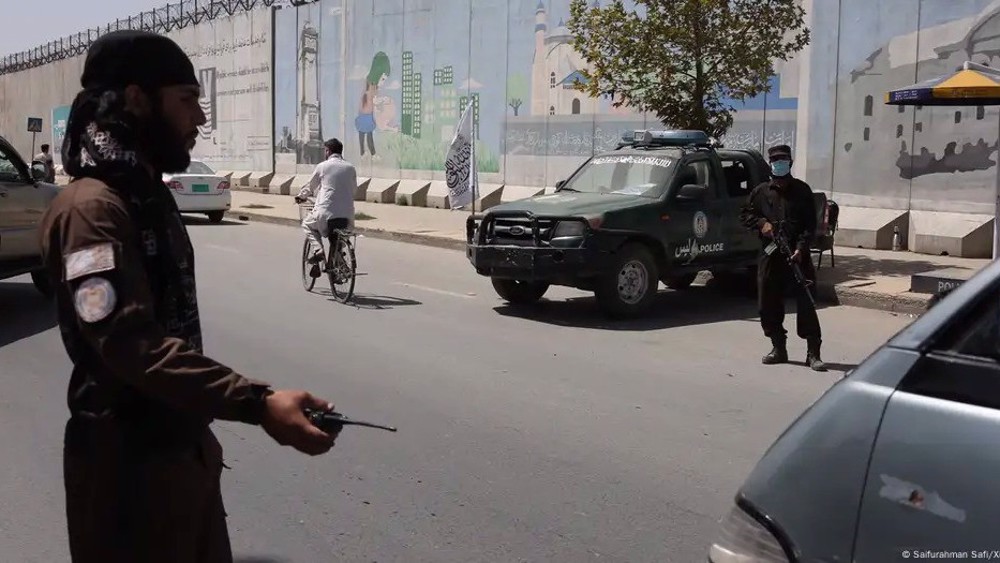
Deadly bombing attack targets Taliban ministry building in Kabul
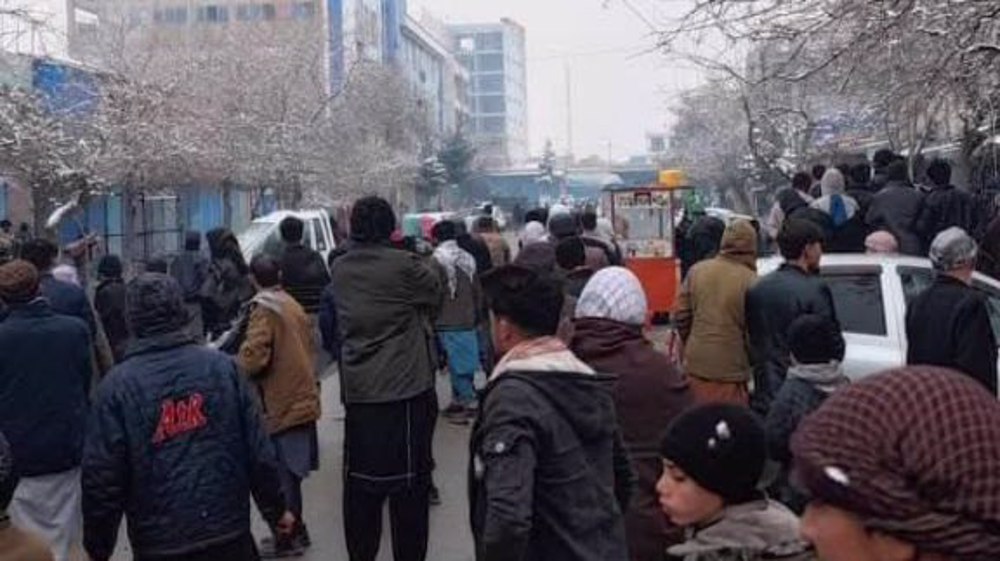
Daesh claims deadly bombing attack in northern Afghanistan
Iran-US talks: Trump, sanctions and the mirage of a durable nuclear deal
US universities defy Trump deportations of foreign students
WFP: Food stocks depleted in Gaza due to all-out Israeli blockade
Yemenis hold nationwide rallies to condemn US aggression, support Palestine
VIDEO | Press TV's news headlines
VIDEO | Gaza’s top surgeon killed under torture in Israeli jails
VIDEO | Araghchi arrives in Oman for US talks; termination of inhumane sanctions ‘priority’
VIDEO | Iran transforms Qeshm Island into Persian Gulf bunkering hub


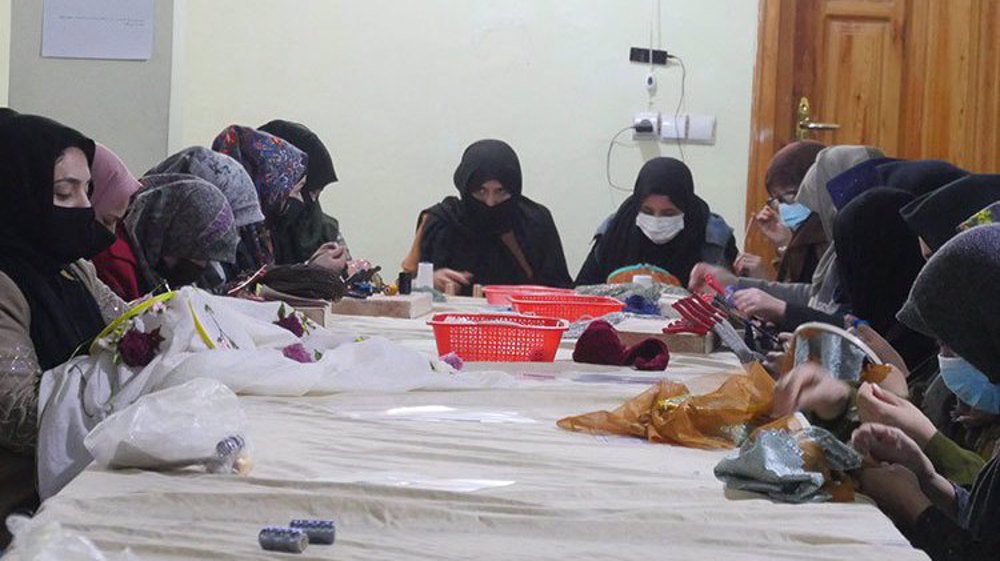



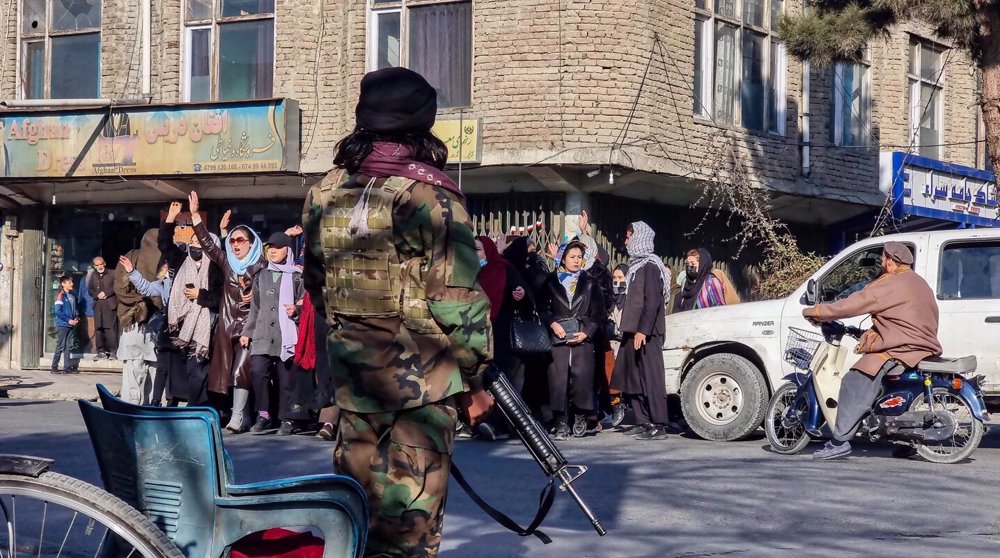
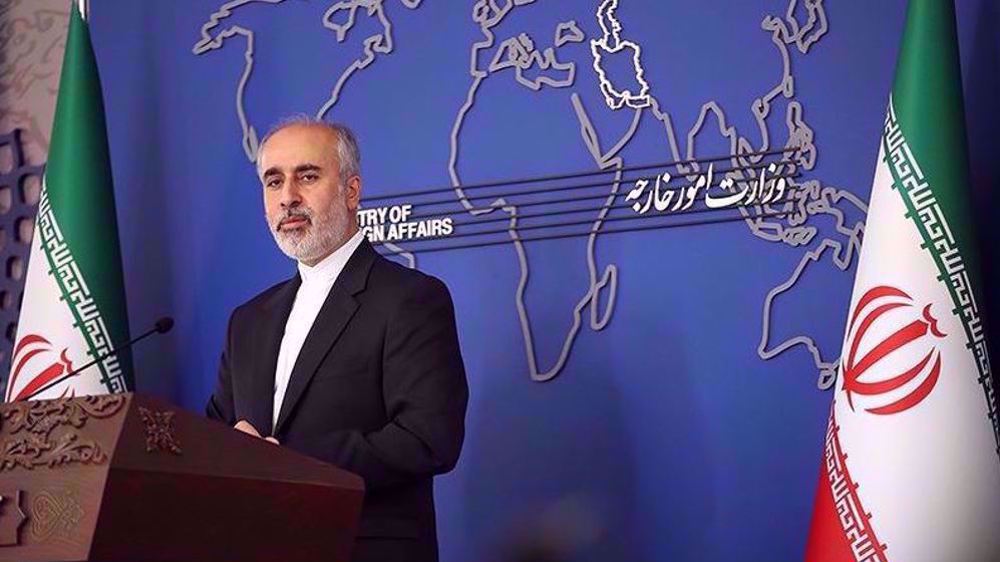
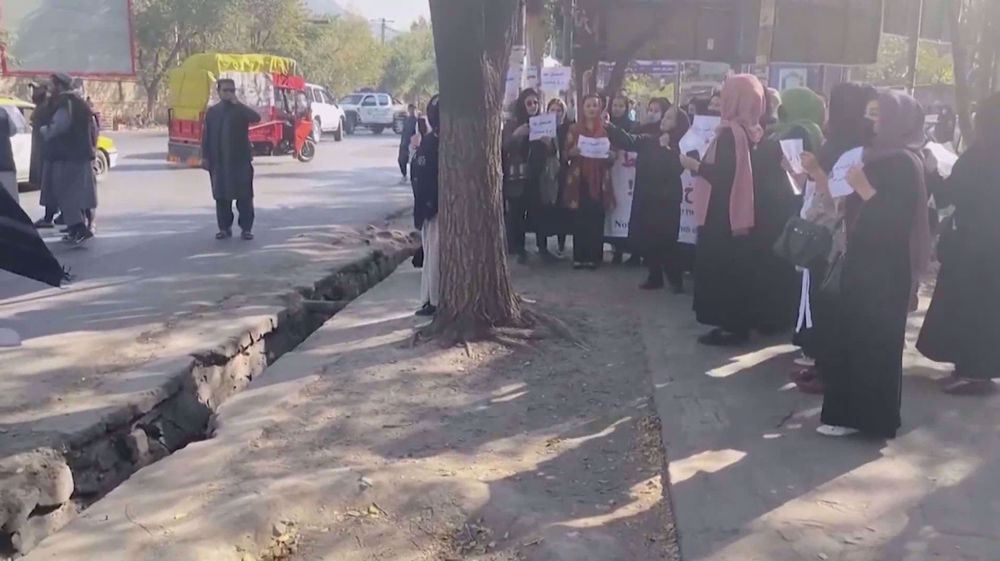
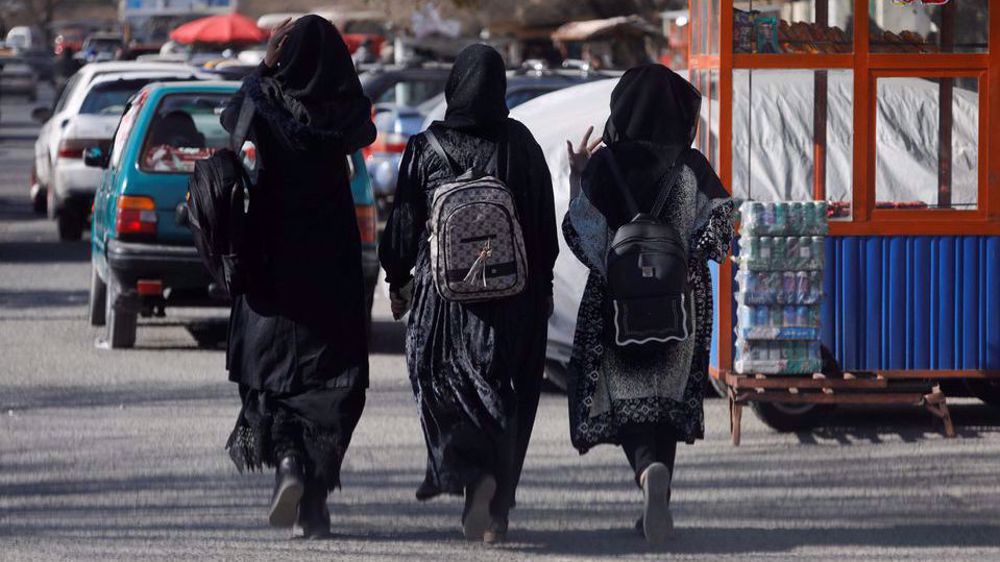
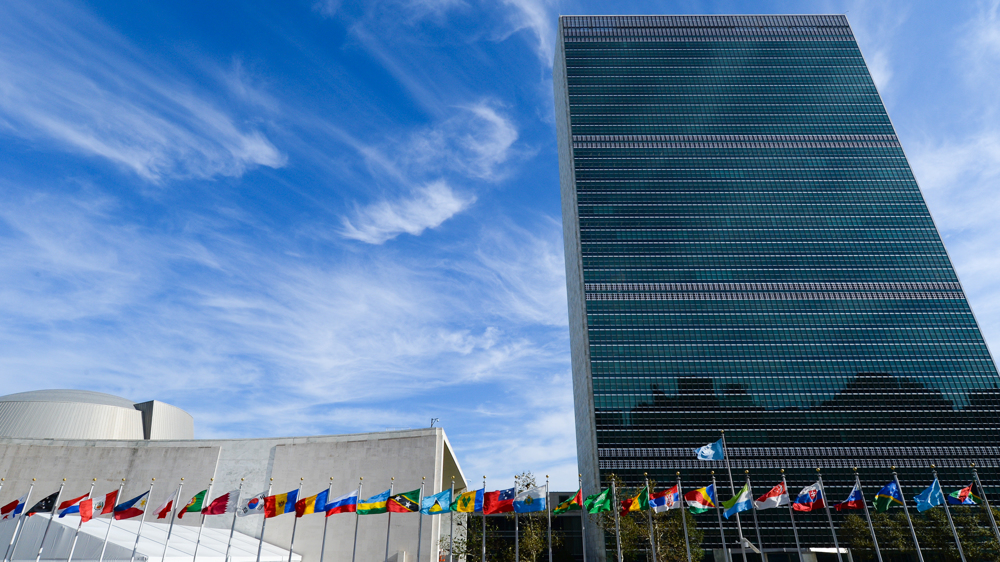
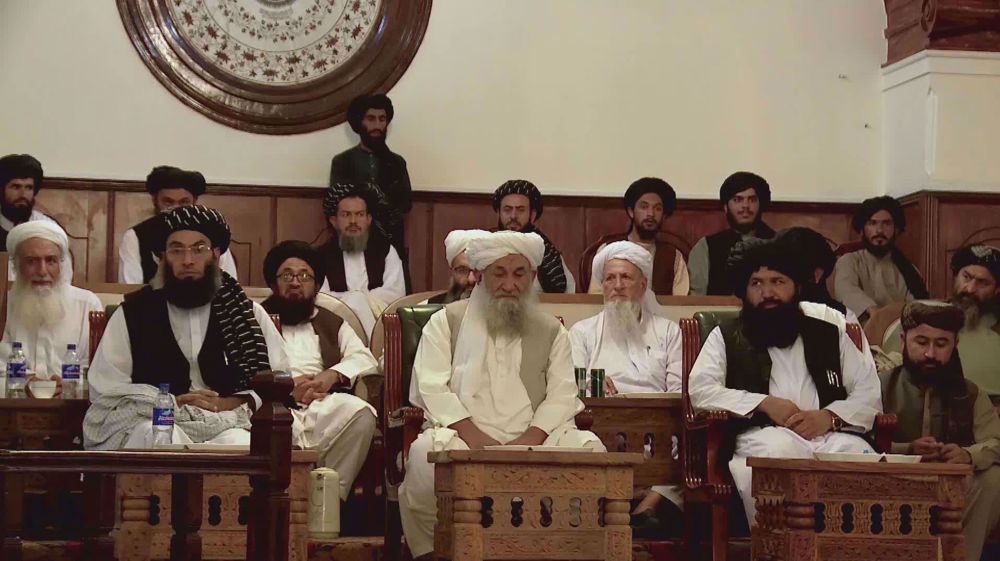
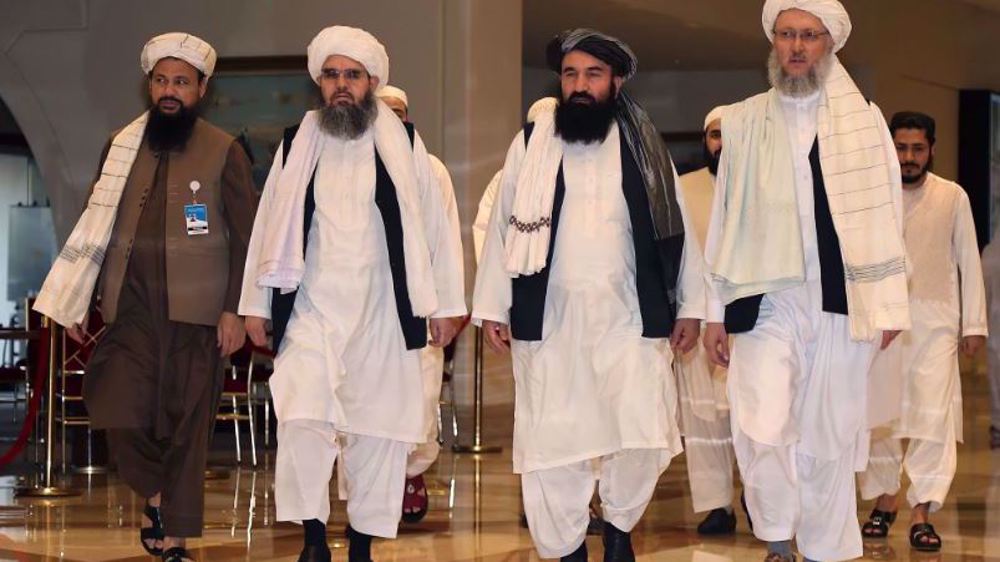

 This makes it easy to access the Press TV website
This makes it easy to access the Press TV website